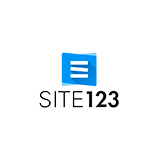ReviewAgent
Top 10 Best Domain Hosting Platform 2023
Compare, Review and Buy - Domain Hosting Platform for 2023
 Last Updated - April 2025
Last Updated - April 2025


Hostinger
Review For Hostinger
760 Reviews
- Hosting TypesShared,Cloud,Wordpress, VPS, cPanel,Minecraft, Cyber Panel VPS and Agency Hosting
- IntegrationsWordPress, LiteSpeed, Jetpack, Cloudflare
- Additional ServicesEmail hosting, Domain checker, Domain transfer, Free domain, SSL certificate and Cloudflare Protection
- Trial30-Day money back guarantee

Hostgator
Review For Hostgator
889 Reviews
- Hosting TypesShared,Dedicated, Cloud, Wordpress, VPS,Reseller
- IntegrationsWordPress, Website builder
- Additional ServicesDomain registration and transfer, Web design, SEO,Free domain and SSL
- Trial45-Day money back guarantee

Bluehost
Review For Bluehost
678 Reviews
- Hosting TypesShared, Dedicated, Managed wordpress, VPS, Reseller, E-Commerce
- IntegrationsWordPress, WooCommerce, JetPack
- Additional ServicesWeb design, Site migration, Free domain, SSL certificate, Online marketing, PPC and SEO
- Trial30-Day money back guarantee
Dreamhost
Review For Dreamhost
500 Reviews
- Hosting TypesShared,Dedicated, Cloud, Wordpress, VPS,Managed
- IntegrationsWordPress, WooCommerce,Google Workspace, JetPack, Cloudfare
- Additional ServicesDomainE-mail,WordPress, Web design, SSL,Web builder,Free domain ,Migration and Cloudflare protection
- TrialUpto 97-Day money back guarantee

Site123
Review For Site123
760 Reviews
- Hosting TypesShared hosting
- IntegrationsE-commerce integration for online stores and SEO tools
- Additional ServicesE-mail support, Learning centre, Free image, Icons Library, Domain and SSL
- TrialGet started and build your website free

Hostpapa
Review For Hostpapa
900 Reviews
- Hosting TypesShared, WordPress, E-commerce, VPS, Reseller
- IntegrationsWordPress, Online store, Website builder, Shopping cart, 400+ Business Apps
- Additional ServicesFull service web design and build, Site lock security and business email
- Trial30-days money back guarantee

Inmotion Hosting
Review For Inmotion Hosting
680 Reviews
- Hosting TypesShared, WordPress, Cloud, VPS, Dedicated and cPanel
- IntegrationsWordPress, Inmotion website builder, E-commerce tools, 400+ One click install applications
- Additional ServicesCustom web designs, Domain name registration, SSL certificate, Endless bandwith
- Trial90-days money back guarantee
Web.com
Review For Web.com
790 Reviews
- Hosting TypesShared, WordPress, E-commerce
- IntegrationsWordPress, Web.com website builder
- Additional ServicesWeb design and build, Free domain, SEO, Endless bandwith, Open exchange email
- TrialOne month introductory pricing offer

A2 Hosting
Review For A2 Hosting
600 Reviews
- Hosting TypesShared, WordPress, E-commerce, VPS, cPanel, Reseller, Dedicated, E-mail, Turbo
- IntegrationsWordPress, Magento, WooCommerce, Website builder and migration
- Additional ServicesE-mail, Free domain, SEO
- TrialMoney back guarantee

Wix
Review For Wix
555 Reviews
- Hosting TypesShared, Website Builder, E-commerce
- IntegrationsWix website builder, Wix e-commerce, Facebook ads
- Additional ServicesE-mail marketing, SEO services
- Trial14 day free trail
Table Of Content
Author: Naina Gupta
Latest Articles

Our Rating System
Our reviews come from verified users–just like you!
The star ratings are based on the overall rating of each brand. Some reviews are provided via third party suppliers. We encourage you to write a review of your experiences with these brands.
Compare Features
Product Images: |  |  |  |  |  |  |  | |||
|---|---|---|---|---|---|---|---|---|---|---|
Product Name: | Hostinger | Hostgator | Bluehost | Dreamhost | Site123 | Hostpapa | Inmotion Hosting | Web.com | A2 Hosting | Wix |
| Hosting Types | Shared,Cloud,Wordpress, VPS, cPanel,Minecraft, Cyber Panel VPS and Agency Hosting | Shared,Dedicated, Cloud, Wordpress, VPS,Reseller | Shared, Dedicated, Managed wordpress, VPS, Reseller, E-Commerce | Shared,Dedicated, Cloud, Wordpress, VPS,Managed | Shared hosting | Shared, WordPress, E-commerce, VPS, Reseller | Shared, WordPress, Cloud, VPS, Dedicated and cPanel | Shared, WordPress, E-commerce | Shared, WordPress, E-commerce, VPS, cPanel, Reseller, Dedicated, E-mail, Turbo | Shared, Website Builder, E-commerce |
| Integrations | WordPress, LiteSpeed, Jetpack, Cloudflare | WordPress, Website builder | WordPress, WooCommerce, JetPack | WordPress, WooCommerce,Google Workspace, JetPack, Cloudfare | E-commerce integration for online stores and SEO tools | WordPress, Online store, Website builder, Shopping cart, 400+ Business Apps | WordPress, Inmotion website builder, E-commerce tools, 400+ One click install applications | WordPress, Web.com website builder | WordPress, Magento, WooCommerce, Website builder and migration | Wix website builder, Wix e-commerce, Facebook ads |
| Additional Services | Email hosting, Domain checker, Domain transfer, Free domain, SSL certificate and Cloudflare Protection | Domain registration and transfer, Web design, SEO,Free domain and SSL | Web design, Site migration, Free domain, SSL certificate, Online marketing, PPC and SEO | DomainE-mail,WordPress, Web design, SSL,Web builder,Free domain ,Migration and Cloudflare protection | E-mail support, Learning centre, Free image, Icons Library, Domain and SSL | Full service web design and build, Site lock security and business email | Custom web designs, Domain name registration, SSL certificate, Endless bandwith | Web design and build, Free domain, SEO, Endless bandwith, Open exchange email | E-mail, Free domain, SEO | E-mail marketing, SEO services |
| Trial | 30-Day money back guarantee | 45-Day money back guarantee | 30-Day money back guarantee | Upto 97-Day money back guarantee | Get started and build your website free | 30-days money back guarantee | 90-days money back guarantee | One month introductory pricing offer | Money back guarantee | 14 day free trail |
1. Introduction
Choosing the best domain hosting platform is an important decision for any business or individual looking to build a website. Domain hosting is a service that allows you to register a domain name and store the files associated with a website. It is a crucial component of website building, as it provides the platform on which your website will be hosted and accessed. With so many options available, it can be difficult to determine which domain hosting platform is the best for your needs. This blog post will provide a comprehensive guide for choosing the best domain hosting platform, with helpful tips and examples.
a. What is Domain Hosting?
Domain hosting is the process of purchasing a domain name and then storing the files associated with a website on a server. It is a crucial component of website building, as it provides the platform on which your website will be hosted and accessed. A domain name is a unique address that serves as an identifier for a website, and it is what visitors will use to find and access your website. By purchasing a domain name, you are essentially renting space on a server to store the files associated with your website.
b. Benefits of Choosing the Best Domain Hosting Platform
Choosing the best domain hosting platform can bring many benefits to your website. It can provide more reliable uptime and faster loading times, as well as increased security and better customer support. Additionally, the best domain hosting platforms often offer more features and customization options, such as the ability to use multiple domain names and the ability to create subdomains. They can also provide better scalability, allowing you to easily increase your storage space and bandwidth as your website grows. Ultimately, choosing the best domain hosting platform can help your website run more smoothly and efficiently.

2. Factors to Consider When Choosing a Domain Hosting Platform
When it comes to choosing a domain hosting platform, there are several factors to consider. Below are five of the most important factors: price, security, reliability, support, and features.
a. Price
Price is always a key factor to consider when choosing a domain hosting platform. It is important to find a hosting provider that meets your budget needs without sacrificing the quality of service. Do your research and compare different hosting plans to find the best deal for you.
b. Security
Security is an essential factor to consider when choosing a domain hosting platform. Look for a hosting provider that offers secure servers to protect your data from malicious attacks. Additionally, check to see if the hosting provider offers any security measures such as two-factor authentication or SSL encryption.
c. Reliability
Reliability is also an important factor to consider when selecting a domain hosting platform. Look for a hosting provider that offers reliable uptime and fast loading speeds. Additionally, check to see if the hosting provider offers any backup and recovery options in case of an emergency.
d. Support
Support is another key factor to consider when selecting a domain hosting platform. Look for a hosting provider that offers 24/7 customer support to answer any questions or concerns you may have. Additionally, check to see if the hosting provider offers any tutorials, FAQs, or forums for additional help.
e. Features
Features are also an important factor to consider when choosing a domain hosting platform. Look for a hosting provider that offers the features you need such as unlimited storage, unlimited email accounts, and the ability to add multiple domains. Additionally, check to see if the hosting provider offers any additional features such as website builders or analytics tools.
3. Popular Domain Hosting Platforms
Choosing a domain hosting platform can be a daunting task for those unfamiliar with web hosting and the process of setting up a website. To help you make the best decision, here are a few of the most popular domain hosting platforms and the pros and cons of each.
a. Google Domains
Google Domains is a domain registration service from Google that offers a variety of features, including domain forwarding and custom email addresses. It also offers easy integration with Google's other services, such as G Suite and Google Analytics. One of the major pros of Google Domains is its low cost and easy setup process. However, it does not offer any hosting services, so you would need to find a separate hosting provider if you wish to use Google Domains.
b. GoDaddy
GoDaddy is a well-known domain hosting provider that offers a variety of services, including domain registration, web hosting, and website building. It is also known for its reliable customer service and easy setup process. However, it can be more expensive than some of the other domain hosting platforms, and it does not offer as many features as some of the other providers.
c. Namecheap
Namecheap is a popular domain hosting platform that offers a wide variety of services, including domain registration, web hosting, and website building. It is known for its low cost and easy setup process. It also offers a wide variety of features, such as unlimited bandwidth and storage, and 24/7 customer support. However, it does not offer as many features as some of the other domain hosting platforms.
d. Bluehost
Bluehost is a well-known domain hosting provider that offers a variety of services, including domain registration, web hosting, and website building. It is known for its reliable customer service, easy setup process, and wide variety of features, such as unlimited bandwidth and storage, and 24/7 customer support. However, it can be more expensive than some of the other domain hosting platforms.
4. FAQs for Choosing the Best Domain Hosting Platform
What Factors Should I Consider When Choosing a Domain Hosting Platform?
When it comes to choosing a domain hosting platform, there are a few key factors to consider. The most important are cost, reliability, scalability, customer service, and features. Cost is an important factor, as you want to ensure you are getting the best value for your money. It is also important to make sure the platform is reliable and can handle the amount of traffic you expect. Scalability is also important, as you may need to increase the number of domains you are hosting as your business grows. Customer service is also important, as you want to be sure you can get support quickly if you encounter any issues. Finally, consider the features the platform offers, such as email hosting, website builders, and security tools.

What Are the Benefits of Using a Domain Hosting Platform?
Using a domain hosting platform has a number of benefits. It can save time, as you won’t need to manage your own servers, and it can also save money, as you won’t need to purchase, maintain, and upgrade hardware. It also offers increased security, as the platform will provide the latest security tools and updates to protect your domains. Additionally, the platform will provide customer service and support, so you can get help quickly if you encounter any issues.
What Are the Different Types of Domain Hosting Platforms?
There are a few different types of domain hosting platforms available. The most common are shared hosting, virtual private servers (VPS), and dedicated servers. Shared hosting is the most affordable option and is ideal for small businesses and websites with low traffic. VPS hosting is a mid-level option and is suitable for websites with moderate traffic. Dedicated server hosting is the most expensive option, but it offers the highest level of performance and scalability.
How Do I Know Which Domain Hosting Platform Is Right for Me?
The best way to determine which domain hosting platform is right for you is to assess your needs. Consider the amount of traffic you expect, the level of performance you need, and the features you require. Once you have determined your needs, you can compare the different hosting platforms to find the one that best suits your requirements.


